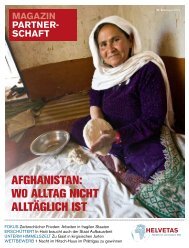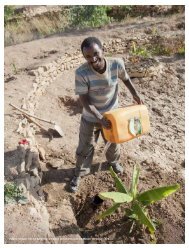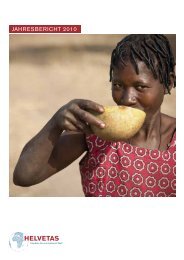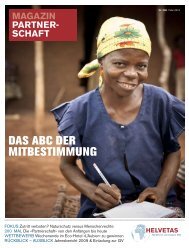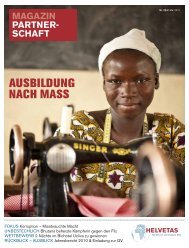Report Feasibility study organic bitter tea Cao Bang - Helvetas
Report Feasibility study organic bitter tea Cao Bang - Helvetas
Report Feasibility study organic bitter tea Cao Bang - Helvetas
You also want an ePaper? Increase the reach of your titles
YUMPU automatically turns print PDFs into web optimized ePapers that Google loves.
<strong>Feasibility</strong> Study Organic Bitter Tea in <strong>Cao</strong> <strong>Bang</strong>: 2007<br />
In South America, <strong>bitter</strong> <strong>tea</strong> (mate) specialists claim that the taste of <strong>bitter</strong> <strong>tea</strong> grown under<br />
shade in the rainforest is much better than <strong>tea</strong> made from plants grown in full sunlight as it<br />
has more flavour, vitality and nutrition (www.guayaki.com, accessed December 8, 2007).<br />
Biological diversity could be improved through the use of various practices, such as:<br />
Establishment or preservation of non-agricultural areas, such as hedgerows and<br />
woodlands, adjacent to or adjoining the <strong>organic</strong> field;<br />
The planting of plants, adjacent to or between cropped areas, that provide<br />
habitat for beneficial organisms;<br />
Introduction of diverse species into any field or farm parcel planted with a<br />
perennial crop;<br />
Cover cropping; and<br />
Soil building practices.<br />
Good examples for enhancing biodiversity would be growing a green manure in the <strong>bitter</strong><br />
<strong>tea</strong> field (which is also beneficial for maintaining soil fertility) or to plant <strong>bitter</strong> <strong>tea</strong> in a<br />
banana field as done by one farmer visited during the survey.<br />
(See picture.)<br />
4.4. Collection and transport<br />
Farmers bring <strong>bitter</strong> <strong>tea</strong> to the factory themselves or through a collector. In some situations,<br />
staff of the BTC will come to the farmer's house to pick up the <strong>tea</strong>.<br />
As described by one collector the process is as follows: Farmers bring <strong>tea</strong> in the afternoon,<br />
the leaves will be taken out of the bags and put in a layer on the bed (to keep the <strong>tea</strong> cool),<br />
the following morning the <strong>tea</strong> will be packed in bags again and put on the bus for<br />
transportation to the factory.<br />
Farmers use their motorbike for transportation or send the <strong>tea</strong> by bus. The collectors also<br />
mostly make use of the bus service to bring the <strong>tea</strong> to the factory and there is no control<br />
over what is happening during transportation.<br />
Bag and container used for transporting and storing <strong>organic</strong> product must be clean or new.<br />
Synthetic fertilizer bags are not allowed. Care should be taken that during transportation<br />
the <strong>organic</strong> products are not contaminated or mixed with non-<strong>organic</strong> products. As<br />
mentioned under 4.2.3 farmers could use new bags for transporting the <strong>tea</strong>. However,<br />
transportation by bus is risky since there is no control over what happens with the <strong>tea</strong><br />
during the time on the bus or during loading and unloading.<br />
Materials used in or produce from <strong>organic</strong> production must not be stored in the same area<br />
as materials/produce from conventional production. Therefore, appropriate measures<br />
should be taken to avoid mixing in the case when a collector handles both <strong>organic</strong> and non<strong>organic</strong><br />
<strong>tea</strong>.<br />
4.5. Processing<br />
The processing of <strong>bitter</strong> <strong>tea</strong> is quite a simple process. It includes the following steps:<br />
Washing of leaves and cleaning out bad quality leaves<br />
Boiling of the leaves in a wok<br />
- 10 -




